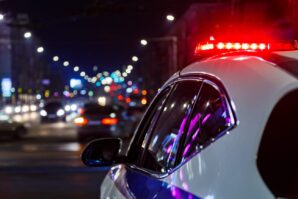The case of the bombing of the refugee column in Bosnia and Herzegovina (BiH) emphasizes the long-standing conflict between Serbia and Croatia.
Serbia plans to prosecute four Croatian air raid officers on a refugee convoy in 1995, although experts believe the case has shortcomings as Zagreb does not co-operate with Belgrade.
Witness 56, as named at The Hague tribunal, is a Serb who was a police officer in Knin from May 1994 to August 5th, 1995, when he left Croatia, along with about 200.000 other Serbs, during a Croatian Army (HV) operation. “Oluja” ( “Storm”), which defeated the Serbian rebel forces in this country.
Since he did not follow the same path as the long convoy of Serb refugees fleeing from Knin to BiH, he was able, he said, to see an airstrike on a long convoy of vehicles.
“On August 7th or 8th, 1995, while in Bosanski Petrovac, Witness 56 saw evidence that the convoy had been bombed on its way to Bravsko (in BiH),” reads a summary of his statement read at the trial before the International Criminal Tribunal for the Former Yugoslavia (ICTY).
Witness 56’s statement was quoted at the trial of HV generals Ante Gotovina, Mladen Markac and Ivan Cermak, who were charged with murder, deportation and inhumane treatment of Serb civilians during Operation Oluja. Everyone is acquitted.
However, the bombing of a convoy of refugees near Bravsko onAugust 7th, 1995 was not part of their indictment; as well as the bombing of another convoy of refugees the next day near the village of Svodna, also in BiH.
Twelve civilians were identified as killed in the two attacks, including four children.
Evidence of these crimes was mostly collected by anti-war NGOs. But Croatia has never prosecuted anyone for the crime, and recently former Croatian Minister Mate Granic tried to justify the attack as a legitimate military operation that caused “collateral damage”.
In May this year, Serbia decided to prosecute four officers of the Croatian Air Force, which provoked harsh reactions from the authorities in Zagreb and right-wingers, who interrupted a discussion held on these incidents in the Croatian capital. The decision also raised the question of whether this crime could be adequately investigated and tried without co-operation between the judicial institutions of all three countries involved in the case.
Nikola Vukobratovic from the Archives of Serbs in Croatia, who works to preserve the Serbian heritage in Croatia, says that Croatia is the only one that can conduct a real investigation into airstrikes on convoys, “in cooperation, of course, with BiH and Serbian institutions. ”.
“The victims and witnesses and the families of the victims were in Serbia, immediately after that, the event itself took place in BiH, the perpetrators are on the territory of the Republic of Croatia,” Vukobratovic told BIRN.
“So, in a situation where there is no intention or will to establish cooperation between the institutions of the three countries to investigate this crime, it is clear that any investigation will be very flawed,” he noted..
Nikola Vukobratovic noted that this crime, as well as many committed during and after the operations of the HV “Bljesak” in May 1995 and “Oluja” in August of the same year, was never prosecuted in Croatia, Detektor writes.
E.Dz.


















